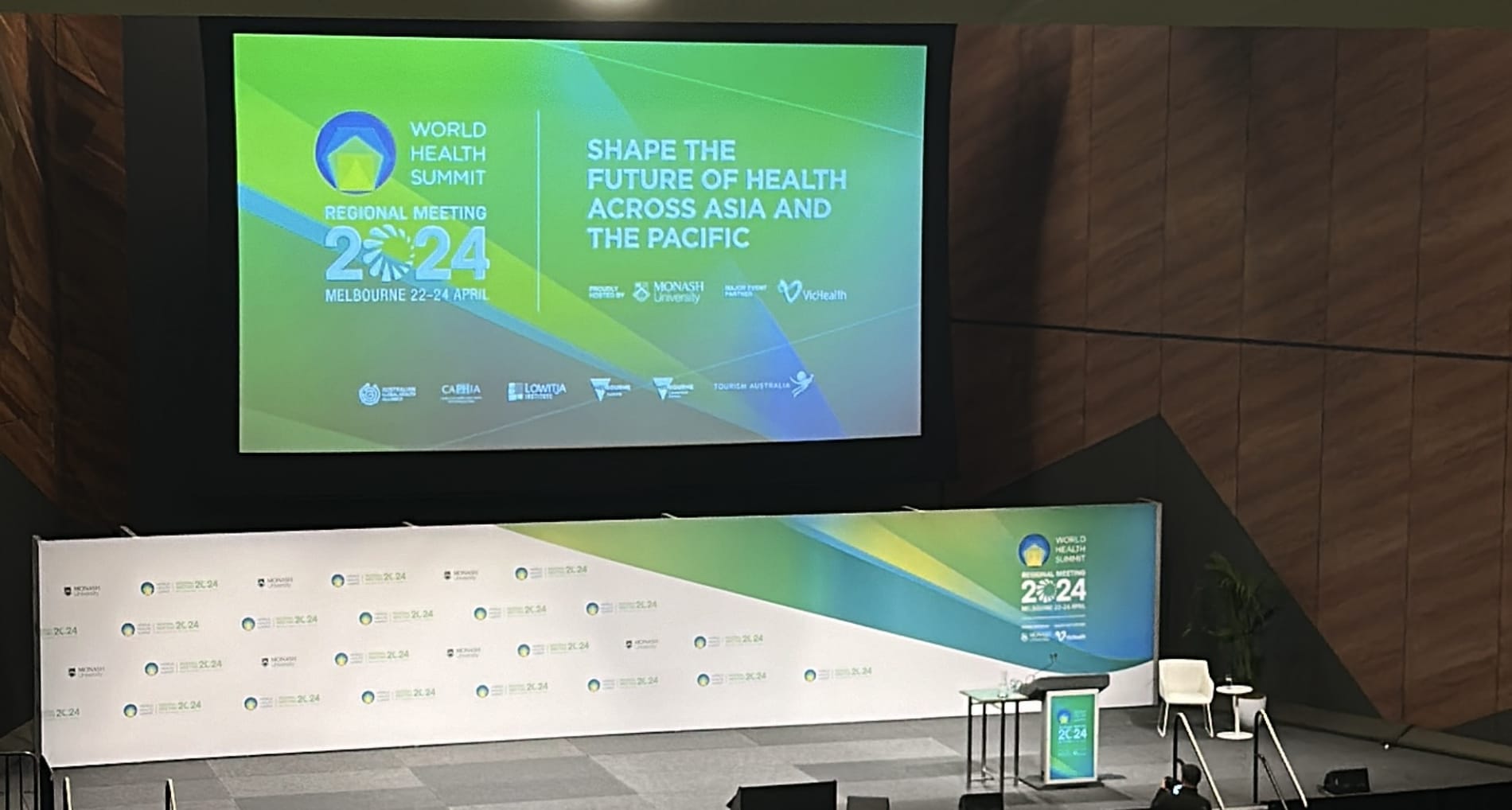



Asia-Pacific nations have been “frequently neglected” in global health discussions due to their small populations and comparative poverty, the 2024 World Health Summit Regional Meeting heard in Melbourne last week.
At the first WHS regional meeting hosted in Australia, Summit Council co-chair Professor Ilona Kickbusch told MOJO News it is vital that the world’s most influential global health platform, based in Berlin, focused specifically on the Asia-Pacific.
“It was really really important to us, the Berlin team, when there was the application by Melbourne to run this conference that we said, ‘Yes, we really want Melbourne to do this, but it must be … an Asia-Pacific meeting,” said Kickbusch, a distinguished speaker at the meeting.
“It must draw attention to specific groups like … Indigenous populations,” she told MOJO News.

More than 150 experts from 40 countries convened to discuss health in relation to climate change, geopolitics and thriving communities at the three-day summit, from April 22 to 24 at Melbourne Convention and Exhibition Centre.
Foreign Minister Penny Wong kicked off the summit, saying “conflict, economic disruptions and new global actors are all putting pressure on health — so too climate change”.
“Australia is firmly committed to the negotiations for the global pandemic treaty, and to ensure our perspectives from our regions are heard,” Wong said.
Her statement reaffirmed Australia’s position on, and willingness for, collaboration to achieve positive health outcomes in light of climate change.
Wong had announced in Suva, Fiji, on her fourth day as the Foreign Minister back in May 2022 that “climate change remains the single threat to the livelihoods, security and wellbeing of the peoples of the Pacific”.
At the summit, Wong said, “we want our region to be resilient against health emergencies, natural hazards and challenges posed by climate change”.
Leaders from across the globe in politics, health, business and medicine presented more than 40 programs at the summit, targeting the challenges of climate change, geopolitics and inequity.
The scene of collaboration emphasised solutions and echoed Wong’s opening speech: “No one country can face these challenges alone. We need to work together.”
Kickbusch, an expert who advised on the establishment of the World Health Organisation Hub on Pandemic and Epidemic Intelligence, spoke about the need to move away from traditional epidemiology and project complex health data differently in future.
“We learned through the COVID pandemic we need new kinds of data, intelligence, knowledge around what actually leads to pandemics and how we deal with pandemics," she said.
“In previous times, one might have spoken about interdisciplinarity and intersectionality," she says. "But we know that in order to better understand the origins of pandemics, we need to organise knowledge differently, and that is captured … by the word intelligence.”
Kickbusch touched on the importance of seizing opportunities in the era of digital transformation to equip humans with the ability to experiment and explore progressive research outcomes.
“We want to send the message that this is not about the traditional epidemiology … like collecting a few more data, but also of combining them differently and projecting them differently ... looking into the future.
“So to also explore the abilities we now have through the digital transformation, through simulation … many of these new kinds of approaches ... where one might not always know the exact outcome of it … but your research outcome might change the world.”
This regional meeting hosted by Monash University encompassed three themes: thriving communities and health, climate change and health, and geopolitics and health.

Participants considered what it would take to achieve and sustain better health and wellbeing for people in the Asia-Pacific in the next decade, what strengths to build on, and what systems had to change.
According to WHO’s latest health report, cardiovascular disease is the leading cause of death in the Asia-Pacific region — indeed worldwide, with nearly 17.9 million of the global population dying from the disease each year.
However, the report found that global warming is having a disproportionate impact on health in Pacific nations.
For instance, 40 per cent of Fiji’s workforce are in agriculture and fisheries, and these livelihoods are experiencing a high burden of climate health risks such as vector-, food- and water-borne diseases.
The effects of climate change are not experienced equally across nations, the report found.
In 2019, data from WHO’s Western-Pacific region also shows that more than 545 per 100,000 people died from cardiovascular disease, compared to less than 100 per 100,000 people in Australia.
Another key health battle is with lung cancer, the leading type of cancer to cause mortality across the Pacific region, followed by liver, stomach, colorectal and breast cancers.
WHO estimates climate change will cause 250,000 deaths each year between 2030 and 2050.
Summit participants discussed how to strengthen regional collaboration and partnerships in environmental health in the Asia-Pacific, including developing adaptation and mitigation strategies to address these impacts.
Chief Communication Officer Jerry Ji, who is the student representative from the global health department of the Australian Medical Student Association (AMSA), said he gained valuable insight from global health leaders and the projects they are working on to improve health outcomes in the Pacific.

“The summit has also brought [to] my attention some of the pressing issues on climate health and action today and has given me ideas on how to aid effort myself and with others,” Ji said.
He said AMSA’s climate health project, Code Green, advocates for better climate action, including educating and empowering young medical professionals to develop solutions to respond to climate-related health emergencies.
“Given we are in the Asia-Pacific region … a lot of projects are quite specific to the Asia-Pacific region, geographically a lot of natural disasters have hit because of climate change, so that [project focus] was one of our primary focuses on our Code Green initiative," he said.
“We work at the intersection of climate and health for medical students, aiming to educate, engage, and advocate on the health challenges posed by climate change.
“Code Green supports the strengthening and expansion of a network of climate change and health projects across Australia,” Ji said.